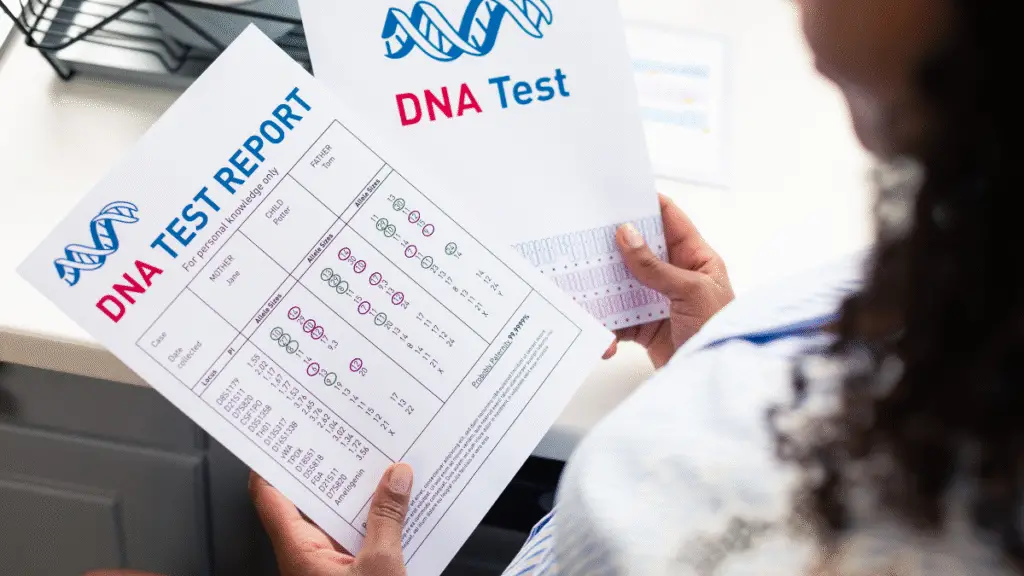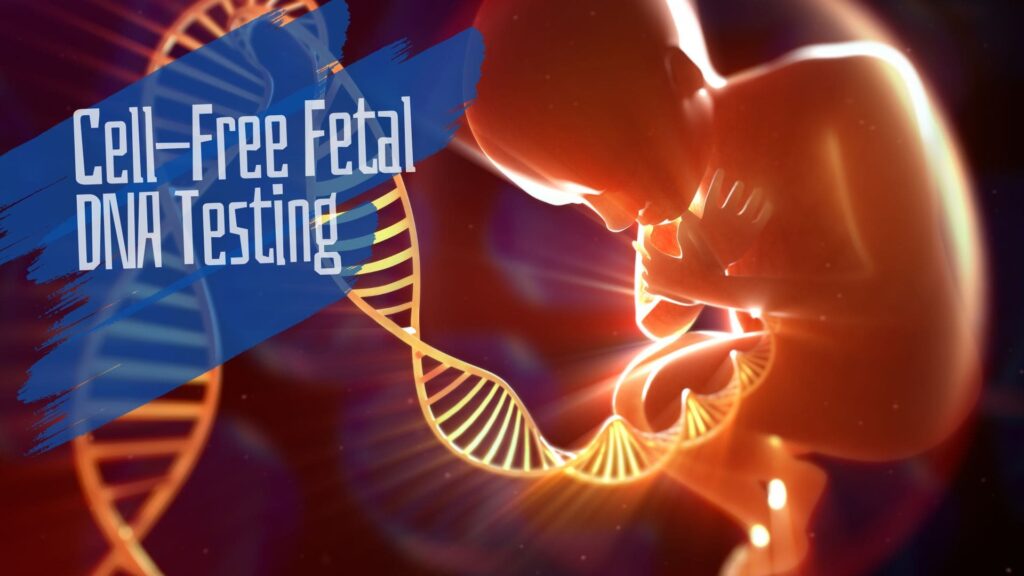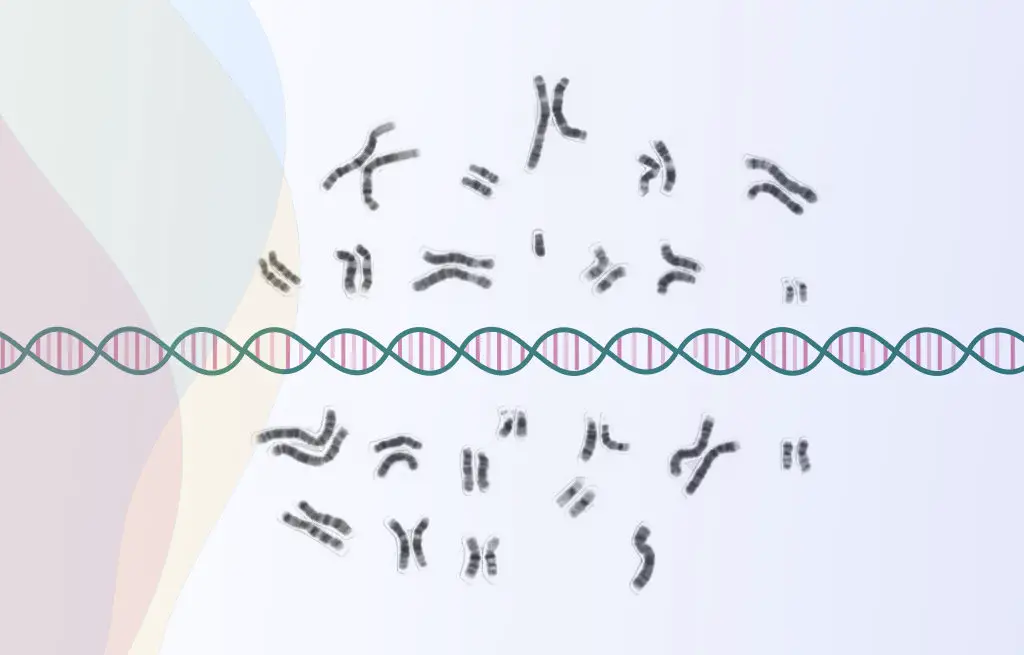Up until recently, DNA tests were something we only heard about in crime shows or research labs. But today we know better; you can actually order a home DNA test kit straight to your doorstep, spit in a tube, and know all the information you want about your genetics.
Crazy right!
Let me explain what a DNA test is.
DNA tests (gene) or genetic testing are medical tests that can identify changes (variations) in your genes, chromosomes and DNA.
And no, DNA tests are just not about knowing your ancestry or for forensics. You can literally know anything and everything.
I know you are confused right now, but by the end of this article, you will find out if your body can handle coffee and whether you carry genetic risks for certain diseases and all this can be figured out by a simple DNA test.
But not all DNA tests are the same, and in this article, we’ll explore the different types of DNA tests, what they can reveal, and why people should choose them for health, lifestyle, or just curiosity.
Key Topics:
Health and medical DNA tests:
Diagnostic genetic test, carrier testing and pharmacogenetic test can be considered as health and medical DNA tests.
Diagnostic genetic tests:
Diagnostic DNA tests are the most well-known DNA tests in medicine. These tests are used when a person already shows symptoms of a disease and the doctor wants to confirm if the cause is genetic.
For example, if a child is showing symptoms like developmental delays, seizures, or unusual growth patterns, this type of test can identify whether the cause is a mutation in a specific gene or something else.
These tests look for mutations or variations in your DNA sequence that can be linked to certain medical conditions.
For instance, mutations in genes like BRCA1 and BRCA2 can indicate the chances of breast cancer and ovarian cancer, a CFTR gene mutation can cause cystic fibrosis, and a mutation in the HBB gene can be responsible for sickle cell anemia.
Carrier testing
Carrier testing is recommended for people who are planning to have a baby. By this test, you can know if your baby is at risk of acquiring any genetic disease.
Why this is important is that you can be perfectly healthy and so can be your partner, but still carry one copy of a faulty gene, and if that gene is passed along with another faulty gene from your partner, the baby could be at risk of genetic mutation.
Let’s understand this with an example.
Let’s say if both parents carry a mutation in the CFTR gene, their child has a 25% chance of being affected by cystic fibrosis.
This type of testing helps identify the risk before pregnancy. Carrier testing is usually done through a blood or saliva sample during pregnancy.
Simply put, this test can predict the health risks for the next generation.
Pharmacogenetic testing
You might have noticed that sometimes a medicine can give you side effects, but the same medicine is working wonders for somebody else. This can be because of your DNA.
There are specific genes that are responsible for metabolising certain medicines. For example CYP2C19 gene affects how people metabolize blood thinners like clopidogrel. In some people, these might not metabolise this medicine effectively. Meaning, the drug can’t work for that person.
Another gene is CYP2D6; any mutation in this gene can mean certain antidepressants may not improve the symptoms and further cause stronger side effects.
In these situations, pharmacogenetic testing has been performed. This test looks at specific genes that influence how your body processes drugs. Either you break them down too quickly, too slowly or not at all.
This can help the doctors to prescribe medicines that would work more effectively, depending on the individual’s body. This test is an approach for personalized medicine that can improve outcomes and avoid harmful side effects.
Lifestyle and wellness DNA tests
Lifestyle and wellness DNA tests are often used for understanding nutrition, sports & fitness, and skincare & beauty at a genetic level.
Nutrigenomic / nutrition DNA tests
Your genes play a huge role in how your body responds to food. There are certain genes that are responsible for the absorption and metabolism of specific food items or nutrients.
For instance, variation in the MTHFR can reduce your ability to process folate (vitamin B9), and the LCT gene determines lactose intolerance. A mutation in these genes can explain why milk and cheese cause discomfort for some people.
Nutrigenomic DNA tests analyse gene variants that control how you absorb, metabolise, and store nutrients. It can tell you whether you are genetically more prone to deficiencies, how your body handles carbs, fats, and proteins.
Read more: An Expert’s Guide to Understand Mitochondrial DNA Test
Fitness and sports performance DNA tests
These tests are popular among athletes and fitness enthusiasts. Some genes in our body are associated with determining endurance, speed and stamina, like the ACTN3 gene, also known as a speed or sport gene.
Another gene, COL5A1, is linked to connective tissue strength; a mutation in this gene may increase the risk of tendon or ligament injuries. The PPARGC1A gene plays a role in how efficiently your body uses oxygen; any variation here can affect stamina.
This test analyzes specific genes that influence muscle growth, endurance, injury risk, and recovery speed. The results of this test can help the athletes to plan an exercise routine that fits their genetic strengths and highlight areas to be cautious about, instead of following a generic routine.
Skin and beauty DNA tests
Skin and beauty DNA tests look at genetic markers linked to skin health, ageing, and how our body responds to environmental stress.
For example:
COL1A1 and COL1A2 genes are involved in collagen production. Any variation in these genes may speed up skin sagging and wrinkling. A mutation in the MC1R gene can be linked to skin sensitivity to UV rays and a higher risk of sun damage.
These tests can provide useful insights like how our skin is likely to age, whether our skin is more prone to pigmentation or sunspots, genetic ability to retain moisture and elasticity and thus the results can guide a personalised skincare routine.
Forensic and legal DNA tests
Forensic DNA profiling
We all have heard about this test in crime shows or read about it in newspapers or detective novels, right? But how does forensic DNA profiling actually work?
Forensic DNA profiling is done by focusing on short tandem repeats (regions of DNA called STRs), which are small stretches of DNA that vary widely from person to person.
Thus, by comparing these regions, investigators can determine whether a DNA sample taken from the blood, hair, skin, or saliva collected at a crime scene matches the suspect, victim, or someone completely unrelated.
It is the gold-standard technique with 99.9% accuracy.
Paternity/maternity or relationship testing
Another well-known type of DNA test – a relationship or maternity/paternity DNA test compares the DNA of two or more individuals to determine whether they are related biologically.
This test is widely used for child custody and legal proceedings.
Ancestry DNA tests
Ancestry DNA tests can estimate where your ancestors came from and what percentage of your DNA traces back to different regions of the world by analysing your genetic markers and then comparing them with large databases.
For example, go take this test now, and you might discover that you are 60% east asian, 20% indian, and 20% European.
Genealogy matching
This test can connect you to your distant relative you didn’t even know existed, but shares your DNA. Genealogy matching is often used by adopted individuals to trace their true biological families.
This test is often used in research and evolutionary studies too to determine the relationship between samples, individuals or populations. Note that it is more or less similar to an ancestry test.
Related article: 10 Things DNA Test Results Tell Us.
Wrapping up:
Your DNA is literally a guidebook of your life, and you don’t even know about it. These tests empower us to understand our bodies better. I hope this DNA test guide helps you understand your body at a genetic level.
This guide is for common people to understand which genetic test they need and what outcomes they will get.
I hope you enjoyed it! Subscribe to Genetic Education.


